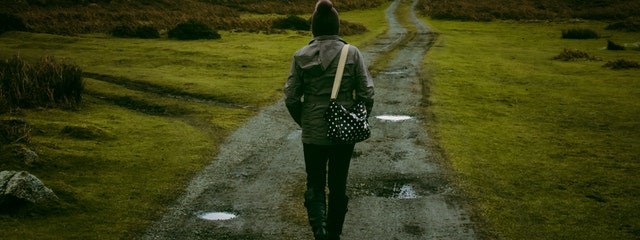April 16th 2021, the date on which Scots could finally leave the confines of their local authority area. For many this meant the ditching of the handful of exhausted walking routes around city streets, replacing them instead with mountain adventures, countryside strolls and the prospect of taking part in activities such as mountain biking and wild camping once again. However, while many relished the arrival of this freedom, for land managers there was and continues to be some anxiety.
Anxiety not without foundation given the issues that arose when travel restrictions ended last summer; dirty camping, campfires left unattended, a surge in fly tipping and littering, dirt biking through the middle of fields, the list goes on. Of course, its widely recognised that these issues were not created by the many but a small majority who chose to exercise their right to take access over land in an irresponsible manner. The clean-up from such incidents to reduce the risk of harm to others whilst juggling day to day agricultural work is no mean feat and illustrates the often finely balanced situation land managers find themselves in when respecting the Outdoor Access Code (“the Code”) whilst complying with their duty under Occupiers Liability.
The Code
Stemming from the Land Reform (Scotland) Act 2003, the Code sets out the basis on which you can take access to much of the land in Scotland. It applies to everything from hills and woodland to lochs and beaches and encompasses activities such as walking, cycling and horse riding.
The Code also sets out the responsibilities of those exercising rights of access and the responsibilities on land managers to ensure a safe environment in which access can be taken. For example in relation to livestock the Code warns those taking access across fields with animals in should be done with caution and at a safe distance while advising landowners that where a field contains a core path, dangerous animals should not be kept there or an alternative signposted route should be provided for the public.
The Code is based on three key principles (respect the interests of others, care for the environment and take responsibility for your own actions) but at its heart is the concept that access should be taken in a responsible manner.
Occupiers Liability
Running alongside the responsibilities on landowners contained in the Code is the law of Occupiers Liability. Occupiers Liability places a duty of care on those in control of land towards anyone on their land from injury. Put simply, where you are aware of something hazardous or allow something to become hazardous without making any interventions and it then causes harm to someone then you will be in breach of your duty under occupier’s liability.
There are limited exceptions to this including when you willingly accept the risk.
Case Study
Given that Occupiers Liability is there to encourage safety and the Code at its heart allows for such a variety of activity that safety may seem unachievable it’s perhaps best to consider a practical example which illustrates how land managers can ensure the two operate in tandem.
Claire owns a farm with woodland running through it. There is a farm track which runs through the woodland often used by the public for walking, horse-riding and cycling. Tourists often use the track to access a nearby village from a wild camping site. Claire decides to dig a trench across the track in the woods for the purposes of laying a water pipe meaning the track will be unusable for a number of days.
Claire realises there is a chance that someone could fall into the trench when she is not there so decides to erect temporary barriers at either end of the woodland. She places signs warning of the path being closed and which direct people to use an alternative route around the edge of the woodlands.
One evening a group heading back to the campsite from the village come across the barriers and warning signs blocking their path through the woods. With the sunlight fading they decide to ignore the barriers and alternative route and press on along the track but in the poor light, fall into the trench with one of them breaking their leg.
Claire’s actions in blocking off the track and placing signs warning of the danger show steps being taken to comply with her duty of care under Occupiers Liability to those coming onto her land. The provision of an alternative route around the woodland also allow Claire to demonstrate that she is complying with the Code.
There is no doubt that we will continue to see rising numbers of visitors to rural Scotland in the weeks and months ahead. Whilst most will take access responsibly, increasing numbers does mean increasing risk of irresponsible access being taken. For land managers: a calm head, regular checking of land, dialogue and education will all be key in navigating through what at times can seem like uncharted and potentially difficult territory.
If you would like further information on this, please do not hesitate to get in touch.


